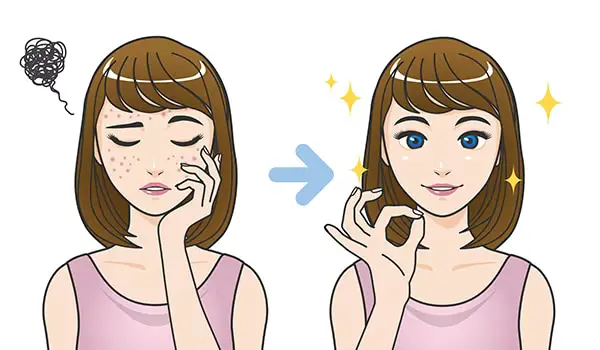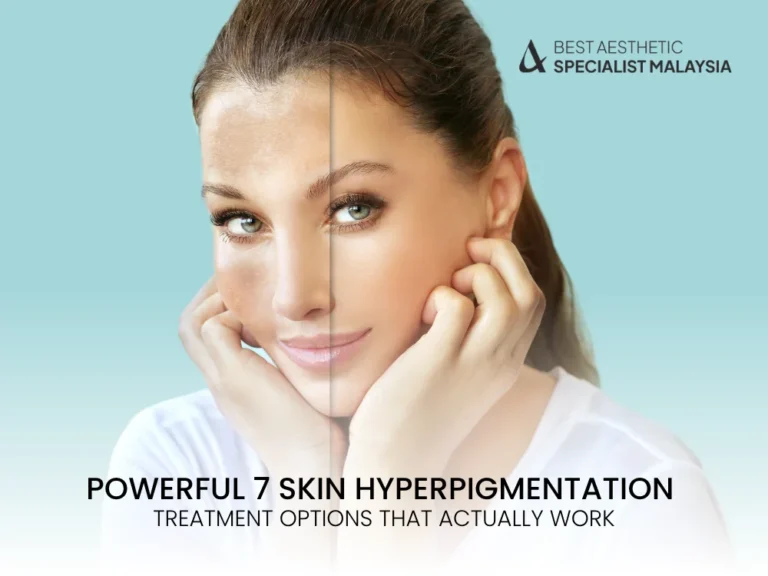Skin discoloration can be frustrating, especially when it’s persistent or worsens over time. Whether due to sun exposure, hormonal changes, or post-acne marks, skin hyperpigmentation affects millions worldwide. Fortunately, with modern dermatological advances, achieving an even skin tone is more attainable than ever. This guide covers the most effective skin hyperpigmentation treatment options available today—backed by science, experience, and real-world results.
What Is Skin Hyperpigmentation?
Skin hyperpigmentation refers to the darkening of the skin in certain areas due to excess melanin production. This can present as brown spots, patches, or discoloration, and while it’s usually harmless, it can significantly affect one’s self-confidence and appearance.
Common Causes of Hyperpigmentation
Understanding the root cause is key to selecting the right skin hyperpigmentation treatment:
- Sun Exposure (UV rays stimulate melanin)
- Hormonal Fluctuations (e.g., melasma during pregnancy)
- Post-Inflammatory Hyperpigmentation (after acne or skin injury)
- Medications (like chemotherapy or antibiotics)
- Genetics

Topical Skin Hyperpigmentation Treatments
Hydroquinone
A gold standard in dermatology, hydroquinone works by inhibiting melanin production. Available in concentrations of 2% (OTC) and higher (prescription), it effectively fades dark spots over time. However, prolonged use should be monitored by a dermatologist.
Retinoids (Retinol and Tretinoin)
Retinoids promote cell turnover and collagen production, helping fade dark spots and improve skin texture. Tretinoin, a prescription form, is particularly effective when combined with other actives.
Vitamin C Serums
This antioxidant reduces melanin formation and brightens the skin naturally. Ideal for sensitive skin, Vitamin C also fights free radical damage and supports collagen synthesis.
Azelaic Acid
Commonly used for acne and rosacea, azelaic acid also lightens hyperpigmented skin and reduces inflammation. It’s gentle and safe for long-term use.

Advanced In-Clinic Treatments for Hyperpigmentation
Chemical Peels
Chemical peels use acids like glycolic, salicylic, or trichloroacetic acid to exfoliate the skin’s upper layers and reduce dark spots. Medium to deep peels should be administered by professionals.
Popular Peel Types:
- Glycolic Acid Peels: Good for superficial pigmentation
- TCA Peels: Suitable for stubborn melasma or age spots
- Jessner’s Peel: Combines salicylic, lactic, and resorcinol acids
Laser Therapy
Laser-based skin hyperpigmentation treatment uses targeted light to break down excess melanin. Depending on your skin tone and type, options include:
- Q-switched Nd:YAG lasers
- Fractional lasers (e.g., Fraxel)
- Pico lasers (picosecond pulses)
Laser treatments require a professional diagnosis and may not suit darker skin tones due to the risk of post-inflammatory hyperpigmentation.
Microneedling
Microneedling creates controlled micro-injuries in the skin, stimulating collagen production and enhancing serum absorption. When paired with topical lightening agents like tranexamic acid or Vitamin C, it significantly boosts results.
Natural Remedies for Skin Hyperpigmentation Treatment
While not as potent as clinical methods, natural remedies can complement other treatments:
- Aloe Vera: Contains aloin, a depigmenting agent
- Licorice Extract: Inhibits melanin formation
- Green Tea Extract: Reduces inflammation and pigmentation
- Apple Cider Vinegar: Acetic acid helps exfoliate dark patches
Always patch-test natural remedies to avoid irritation.
Preventing Hyperpigmentation Recurrence
Effective skin hyperpigmentation treatment also involves ongoing prevention:
Daily Sunscreen Use
Sunscreen is non-negotiable. Broad-spectrum SPF 30 or higher protects the skin from UV rays and prevents further melanin production.
Avoid Picking at Skin
Popping pimples or scratching irritations can worsen hyperpigmentation. Let the skin heal naturally or seek professional treatments.
Use Gentle Skincare Products
Avoid harsh scrubs, strong alcohol-based toners, or irritating ingredients that can lead to inflammation and darkening.
Best Skincare Routine for Hyperpigmented Skin
Morning Routine:
- Gentle cleanser
- Vitamin C serum
- Moisturizer with niacinamide
- Sunscreen (SPF 50)
Evening Routine:
- Cleanser with salicylic or glycolic acid
- Retinoid or azelaic acid cream
- Moisturizer
- Spot treatment with hydroquinone (as prescribed)
This combination targets pigmentation from multiple angles while preserving your skin barrier.
How Long Does Skin Hyperpigmentation Treatment Take?
Results vary depending on the type, depth, and cause of pigmentation. Generally:
- Topical treatments: 4–12 weeks for visible improvement
- Chemical peels and lasers: 2–6 sessions spaced weeks apart
- Natural remedies: Mild improvement over several months
Patience and consistency are key when following any skin hyperpigmentation treatment plan.
Choosing the Right Treatment
Always rely on evidence-based, dermatologist-recommended solutions. Consulting a board-certified dermatologist ensures your treatment is tailored to your skin type and medical history. Avoid trendy, unverified TikTok treatments that lack scientific backing.
Choose products or clinics with:
- Transparent ingredient lists
- Clinical studies or FDA approval
- Testimonials from real patients
- Professional-grade equipment and staff
FAQs
1. Can skin hyperpigmentation be permanently removed?
Some forms, like sunspots, can be significantly faded or removed. Others, like melasma, may recur without continuous maintenance.
2. Is skin hyperpigmentation treatment safe for dark skin?
Yes, but treatments like lasers and strong peels should be selected carefully to avoid post-inflammatory hyperpigmentation.
3. How often should I use topical treatments?
Typically once daily (retinoids at night, Vitamin C in the morning). Follow the product label and consult your dermatologist for best results.
4. Can sunscreen alone help hyperpigmentation?
While it won’t fade existing spots, it prevents worsening and supports other treatments by blocking UV-triggered melanin production.
5. Is it okay to combine different treatments?
Yes, many regimens combine topical and in-office methods for better results. Just ensure they’re dermatologist-approved.
6. Do over-the-counter creams work?
Some OTC options like niacinamide, azelaic acid, and low-dose hydroquinone can be effective with consistent use.

